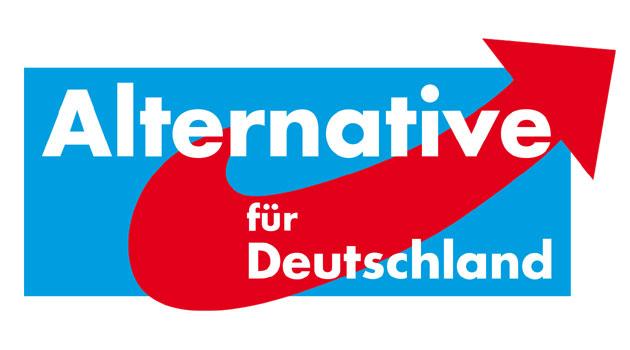Analysis: The phenomenon of the Alternative for Germany party

Last weekend in Germany, the state of Berlin elected new representatives to the state legislature and to local municipal councils. The results of the elections once again demonstrate that the distribution of political forces in the various states is unique in each location.
Many migrants have always traditionally lived in Berlin, and many work in high positions there. The cultural activities, restaurants and shops run by migrants co- create the tone of the city and attract tourists from all over the world.
For that reason, the results of the Berlin state elections are not representative of the rest of the country. The elections were won, once again, by the Social Democratic Party (SPD), but they achieved a record low 21.6 % of the vote.
In the state legislature the SPD will have nine fewer seats than before, for a total of 38. The Christian Democratic Union (CDU) received 17.6 % of the vote, falling from 39 seats after the last elections to 31 seats now.
Because of that result, the current governing grand coalition will collapse because it has lost its majority. The winner of the elections will have to form a coalition with at least two more parties to maintain a majority in the legislature.
The Left Party (Die Linke) ended up with 15.6 % of the vote in third place, gaining eight seats for a total of 27. That is the same number of representatives in the legislatiure as the Society 90/Green ticket, who won 15.2 % of the vote.
Fifth place went to the populist Alternative For Germany (AfD), which won 14.2 % of the vote and 25 seats during its first-ever attempt to field candidates in Berlin. The FDP liberal party will newly join the Berlin state legislature with 12 representatives and 6.7 % of the vote.
The Pirates will no longer be seated there, winning only 1.7 % of the vote. It is anticipated that Berlin will be governed by a “Red-Red-Green” coalition that will be favorably inclined toward refugees.
Party of fear and protest
Now let’s look at the inter-party migration of voters in the Berlin state elections. AfD took 37 000 voters away from the CDU and 22 000 voters away from the SPD.
AfD also took 3 000 voters from the Greens and a total of 11 000 voters from Die Linke and the Pirates, precisely the so-called protest voters who do not have consistent political opinions. Two-thirds of AfD voters said they decided to vote for the party in Berlin because they were dissatisfied with the other options.
That is precisely what AfD voters said in Mecklenburg-West Pomerania after the state elections there at the beginning of September. In terms of age, it seems most AfD voters are older than 45 and most between the ages of 45-59.
AfD voters are also said to be 23 % working class and 19 % unemployed. Their most frequent voters include people with just a secondary school education or less, while only 7 % of their voters are college graduates.
It would be a dangerous simplification of the situation, however, to allege that this new German party is comprised only of neo-Nazis and racists. Generalization never leads anywhere, no matter what group of people in the world we are discussing.
It is also not true that the AfD is only a protest party. Its voters do frequently seem unable to keep up with the rapidity of the globalization of the economy and society, as well as with modernization.
AfD voters also seem to be under the impression that elites are deciding such matters without the prior consent of the governed. Few of them seem to have learned how to participate in political decision-making, however, and a week ago that led to the AfD party’s first overwhelming defeat, namely in the municipal elections of North Rhine- Westphalia, the most densely populated and fourth-largest German state geographically.
The AfD party simply did not manage to field enough candidates to win in that state. However, the fact that the AfD has come about, its very existence, might actually contribute to the further development of democracy in Germany if the party manages to articulate, for example, justified concerns that other politicians have long overlooked the gravity of.
While during the elections to the Berlin legislature the established parties brought in 41 000 first-time voters to the process, AfD alone managed to reach around 64 000 first-time voters. Thanks to AfD, therefore, the number of registered voters is growing in Germany, which means more people grasp that democracy is alive and that each voter can participate in political decision-making, even if all they do is cast a ballot.
Scare them, scare them, scare them
AfD’s main problem currently is the way it competes for votes. The rhetoric of its representatives testifies to the culture of fear that the AfD wants to create in society in order to turn people away from the established parties.
Scare tactics are, by the way, the favorite political tool of a broad variety of parties in the post-communist world, and the situation in those countries was no different during communism, either. Some sociologists are pointing out that rather a lot of AfD voters are migrants from Eastern Europe, mainly from the Russian Federation and the post-communist states of Central Asia.
Several million such persons emigrated to Germany in recent decades if they were able to demonstrate that they were at least partially of German origin. Due to their low levels of educational attainment, they are frequently afraid of competition from new immigrants and refugees on the labor market.
These voters consider themselves “real” Germans, even though in their homes and in their communities, to this day, they mostly speak Russian and speak German poorly – unlike, for example, German citizens with Turkish roots, who are in their third generation of living in Germany and who no longer speak Turkish. What’s more, this party of the “paranoid” makes no secret of its admiration of Russian President Vladimir Putin, a classic “Führer” who does not uphold the democratic principles of Western society.
Putin enjoys presenting himself in public as a macho or a warrior condemning foreigners, “homosexuals”, and anybody in the opposition. Just like him, the AfD cultivates an aggressive vocabulary, lacks arguments, and pushes the buttons of the very lowest of human instincts.
Positive aspects of the AfD’s electoral successes
What is to be done about this? A pluralistic democracy essentially tolerates a variety of opinions, so Germany can be glad that the AfD is attracting all of the politicians with anti-Semitic, homophobic and racist opinions away from the established parties.
In the various state legislatures, municipal assemblies and councils where they are about to be seated, those people will now have to listen to a different kind of language. Long-term, it is also an advantage for the other parties that the AfD is politically fragmented internally.
Its representatives range from a left-wing faction to a strongly right-wing one, and these extremes passionately argue among themselves. For that reason, the party does not yet have a classic, statewide election program, but just a brief summary of some of the political principles on which its delegates have agreed (through gritted teeth).
Another positive consequence of the AfD’s success is the fact that the established parties, because of the AfD, are literally forced to once again take a public stand against intolerance and nationalism. In the person of Angela Merkel, Germany currently has a Chancellor who knows how to do that.
Merkel has pushed for years for strongly unpopular political steps to be taken without ever losing her own popularity. Three-quarters of German voters consider Merkel a good Chancellor.
If she decides to run once again during the national parliamentary elections and no unanticipated developments occur in the interim, she will win hands down. It can then be expected that, just as has happened with the Pirates, the most competent AfD politicians will move into one or the other of the established parties in time.
Since none of the other parties will form a coalition with the AfD, it will probably collapse due to a lack of viable ideas before it can ever become a member of a governing coalition able to actively participate in implementing policy. According to the most recent polls, however, the AfD could win up to 10 % of the vote in the national elections to Parliament.
Once the topic of refugees (or rather, their problems with integration) fades from the forefront of the political debate, the brightly shining star of parties of the AfD type will also burn out. Proof of this is the fact that in the Berlin state elections, parties supporting the Government’s asylum policy, as promoted by the Chancellor, won 85 % of the vote.
